Are copper pots healthy?
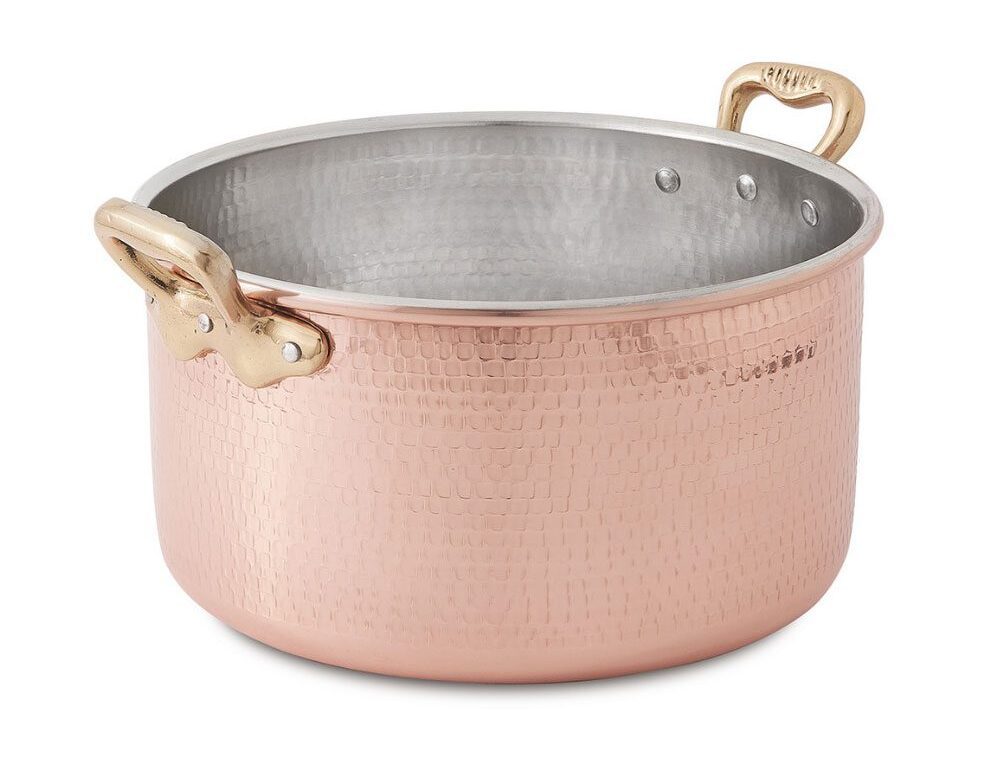
As it turns out, it is not only what you cook, how you cook the food, but also in what. Are copper pots healthy? While Teflon was recognized as potentially dangerous some time ago, pans and pots made of natural materials continue to confirm their beneficial effects on health. According to another study published on PubMed, cooking food and storing water in copper cookware is not only healthy, but has a very positive effect on bacterial flora. According to the study, copper cookware prevents the growth of pathogens. How does this translate into everyday use? Is copper cookware more beneficial to health than steel or silverware?
Copper in human history
Can you imagine the development of civilization without copper? This versatile metal has accompanied mankind for thousands of years. One might be tempted to say that it is changing the face of the world. Already in the Bronze Age, when it was discovered that an alloy of copper with tin creates a harder and more durable material, mankind took a quantum leap in technology – better tools, weapons and ornaments began to be created. Copper became a symbol of power and progress. Cyprus – the main supplier of this valuable raw material in antiquity – even gave it a name (Latin.cuprum).
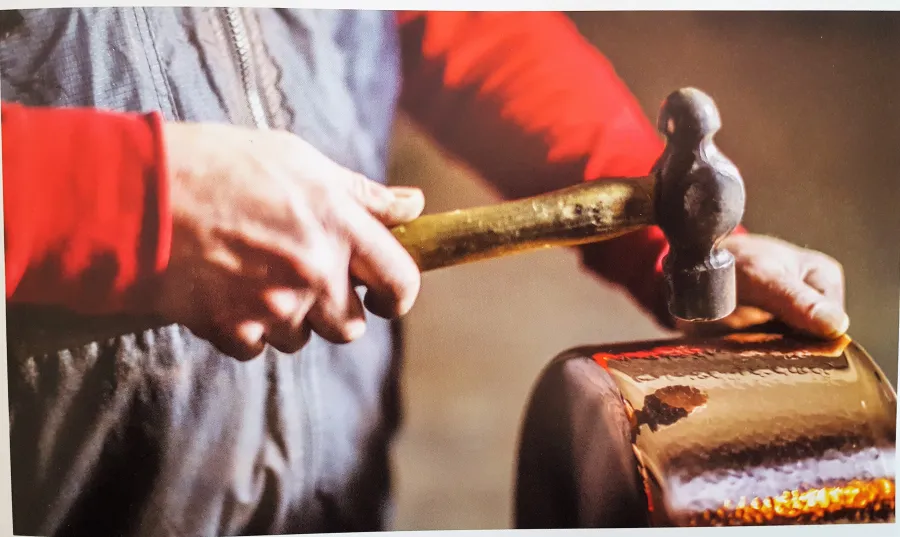
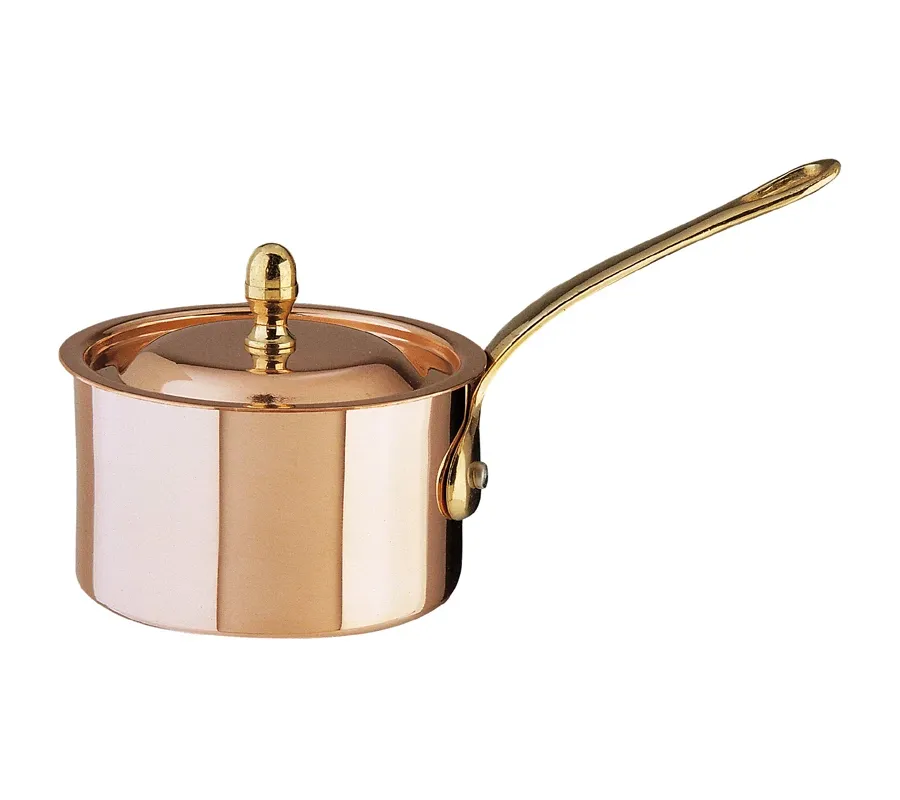
Without copper, there would be no monumental buildings covered with roofs made of this metal’s alloys, no magnificent statues or development of trade. This, thanks to copper coins gained new opportunities. Even today, in the digital age, copper remains irreplaceable – it conducts electricity, connects the world with cables and drives the development of technology. Isn’t it fascinating that a metal discovered thousands of years ago is still the foundation of our everyday life? So when one wonders whether copper pots are healthy, just think about mankind’s relationship with this element. The answer comes to mind. However, it is confirmed by scientific research.
Are copper pots healthy – research dispels doubts
Copper cookware has been enjoyed in kitchens around the world for centuries. Modern science is providing more and more evidence of their beneficial effects on health and the quality of the food being prepared. The research, published in the journalJournal of Health, Population and Nutrition (2012) confirmed that copper has strong antibacterial properties. What is the result of this? Thanks to its properties, it is extremely effective in eliminating pathogens such asE. coli iSalmonella. Experiments have shown that storing water in copper vessels for just 16 hours reduces the number of bacteria by more than 99%.
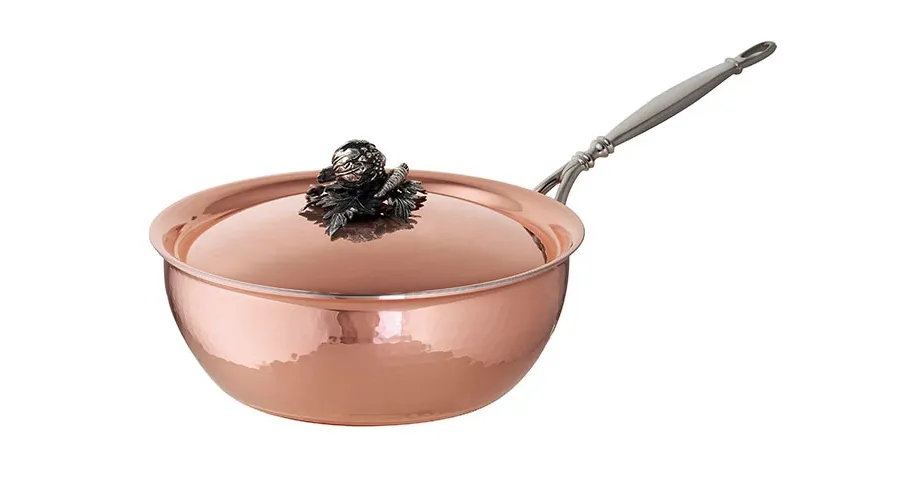
Comparing copper with other materials used in the kitchen, such as stainless steel and silver, studies have shown that copper works faster and more effectively in neutralizing bacteria. Silver, while also showing antibacterial properties, works more slowly. Stainless steel, on the other hand, shows virtually no such characteristics. At the same time, studies indicate that the use of copper cookware is safe, provided it is used properly, such as avoiding cooking very acidic food in it, which can lead to excessive release of copper ions.
In laboratory tests, the conditions of daily use of copper pots were simulated. In doing so, the level of copper migration into food and water was monitored. The results confirmed that the amounts are small and remain within the standards set by the World Health Organization (WHO). In addition, copper, as a trace element, is essential for the proper functioning of the body. Supporting the immune system and metabolism.
So are copper pots healthy? What is probably already obvious, they can be a healthy choice in the kitchen, provided that they are used consciously. Their unique antibacterial properties set them apart from other materials. This makes them not only practical, but also conducive to health.
Copper – an important element for health
Copper is a trace element that plays an important role in many biological processes in the human body. Its positive effects include:
- Energy production – participates in metabolic processes in the mitochondria.
- Collagen and elastin formation – supports the health of skin, blood vessels and connective tissue.
- Hemoglobin synthesis – helps transport oxygen in the body.
- Immune enhancement – acts as an anti-inflammatory and supports the functioning of the immune system.
- Antioxidant action – neutralizes free radicals, protecting cells from damage.
- Nervous system development – supports brain function and nerve conduction.
- Maintaining heart health – regulates cholesterol levels and supports heart function.
Risks and effects of copper deficiency or excess
Copper deficiency can lead to anemia, a weakened immune system, neurological disorders (such as difficulty concentrating), bone problems (osteoporosis) and heart rhythm disorders. Symptoms can be subtle, so the deficiency often goes undiagnosed.
Copper overdose, while rare, can occur as a result of overexposure to copper (such as from contaminated water or supplements). Symptoms include:
- Short-term: nausea, vomiting, abdominal pain and diarrhea.
- Long-term: liver and kidney damage, jaundice, neurological disorders (e.g., seizures) and depression-like symptoms.
Both copper deficiency and excess require consultation with a doctor to avoid serious health consequences. Maintaining adequate copper levels is very important for health and well-being.
What to pay attention to when cooking in a copper pot?
Cooking in copper pots is a real pleasure. However, it is good to remember a few rules to fully enjoy their benefits. Copper is an excellent conductor of heat, making it ideal for dishes that require precise temperature control, such as sauces, creams and caramel.

However, avoid storing acidic foods in them, such as dishes with tomatoes, lemon or vinegar. Contact with acids can lead to the release of copper into the food, which in excess can be harmful. That’s why most modern copper pots are lined with a layer of stainless steel Or tin, which prevents such risks. It is also a good idea to wash them by hand and avoid harsh detergents to preserve their beautiful shine and functionality. Preparing food in copper pots is not only a culinary art, but also a bit of luxury in everyday cooking! You probably don’t need to wonder anymore whether copper pots are healthy, just get on with cooking. How?
How to cook in copper pots – tips from chefs
Preparing food in copper pots – could there be anything better for lovers of culinary sensation and precision. As many chefs, such as Alain Ducasse, emphasize, “copper is the perfect tool, allowing you to control the temperature every degree.” Thanks to its exceptional thermal conductivity, copper pots are indispensable for preparing delicate dishes such as creamy sauces, risottos and chocolate ganache.
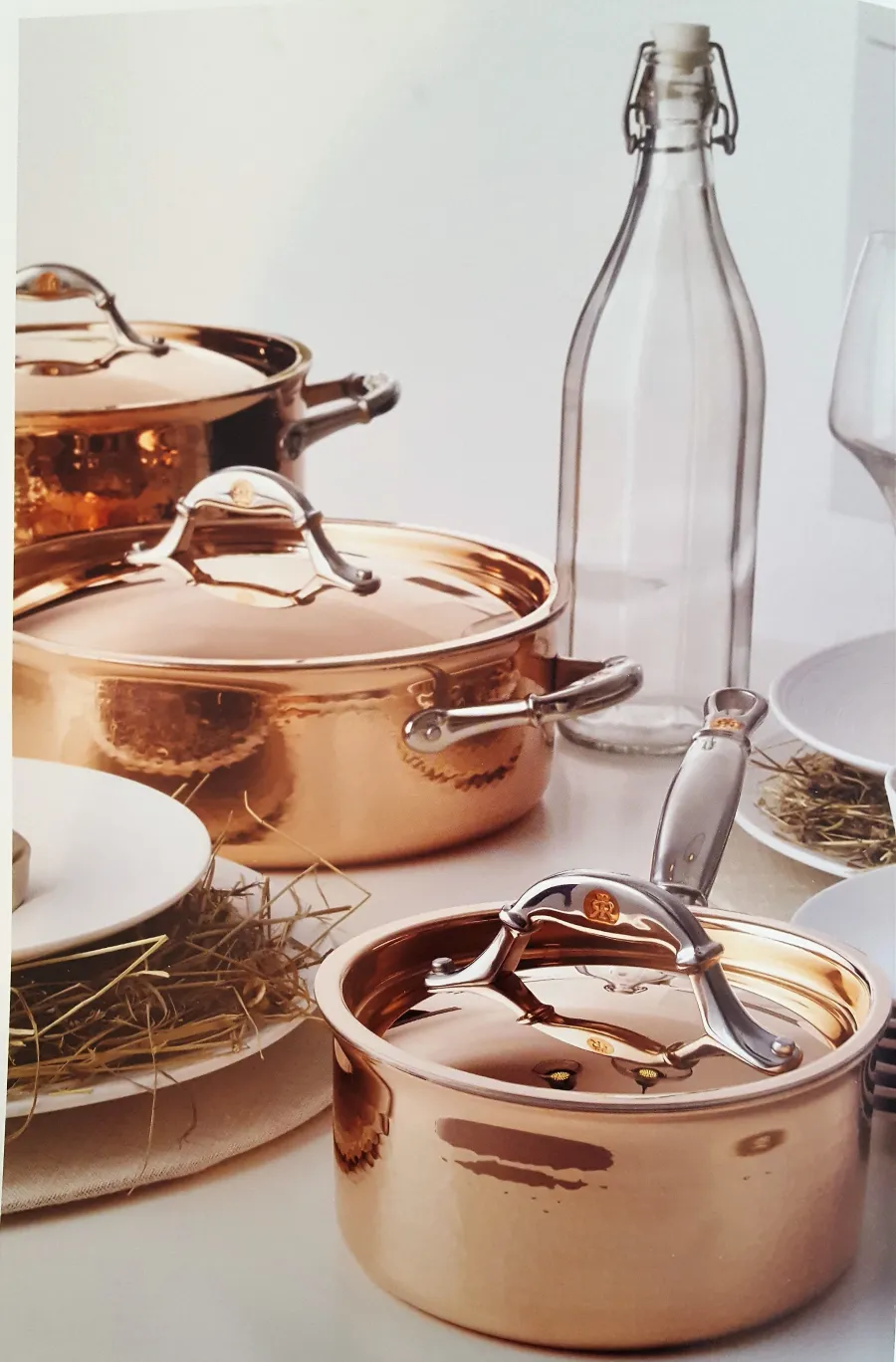
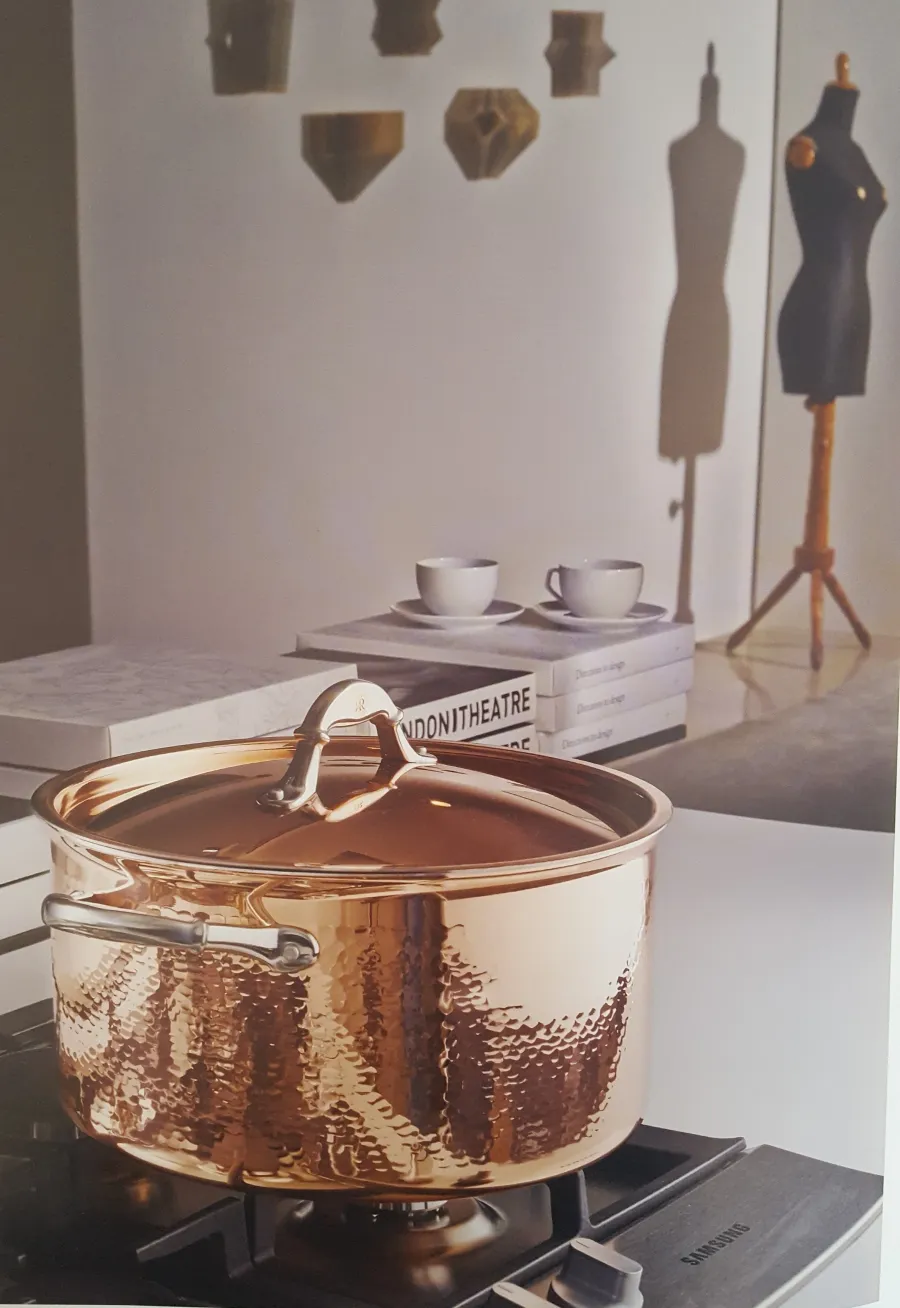

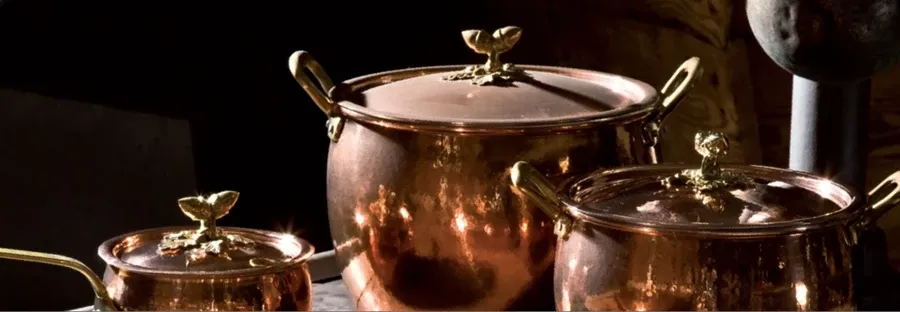
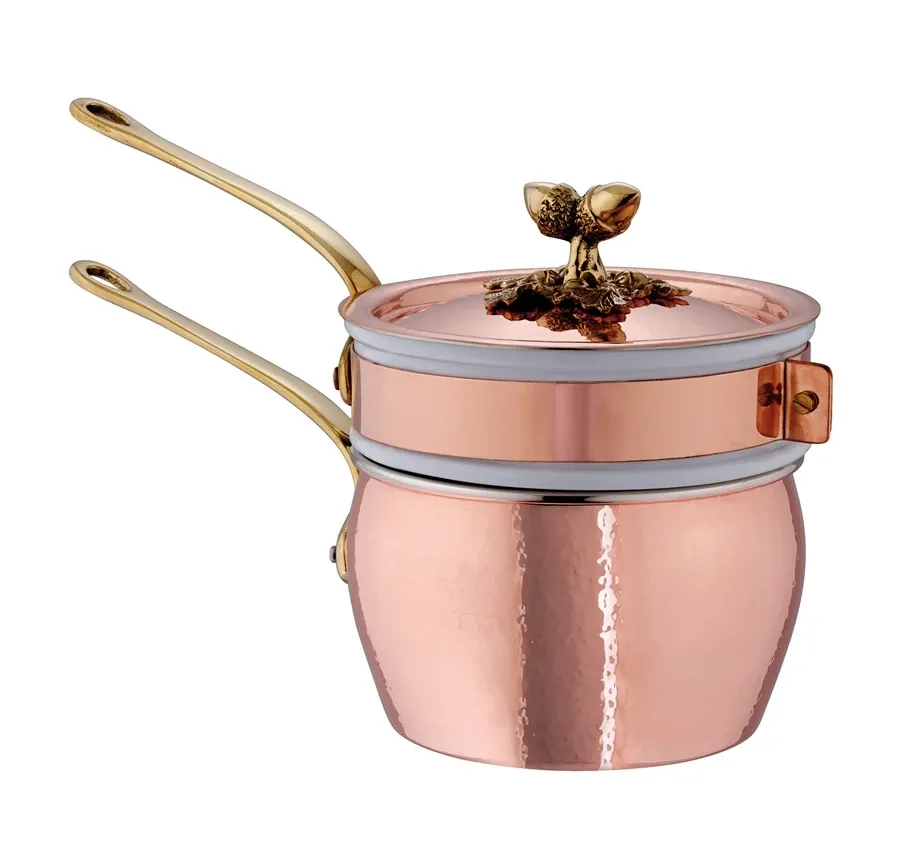
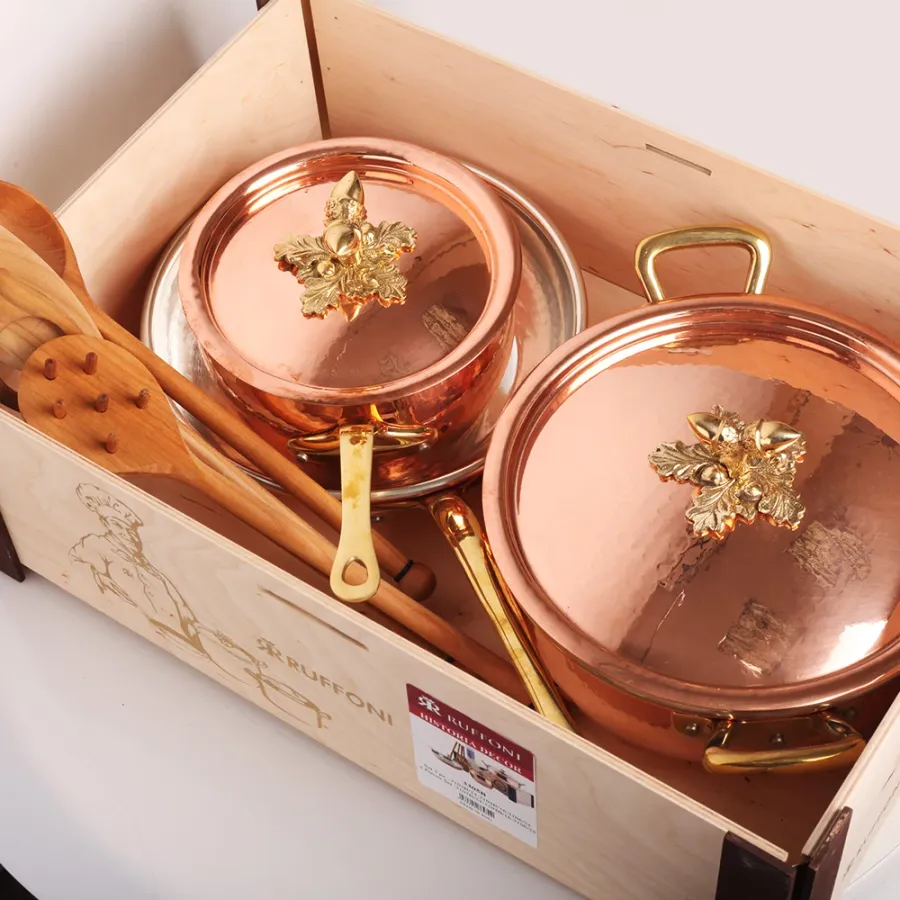
Experienced chefs also recommend them for caramelizing vegetables and frying meats. Even heat distribution allows you to get the perfect texture and flavor. Important tip: always preheat the pot well before cooking, but avoid excessively high temperatures so as not to damage the inner protective layer.
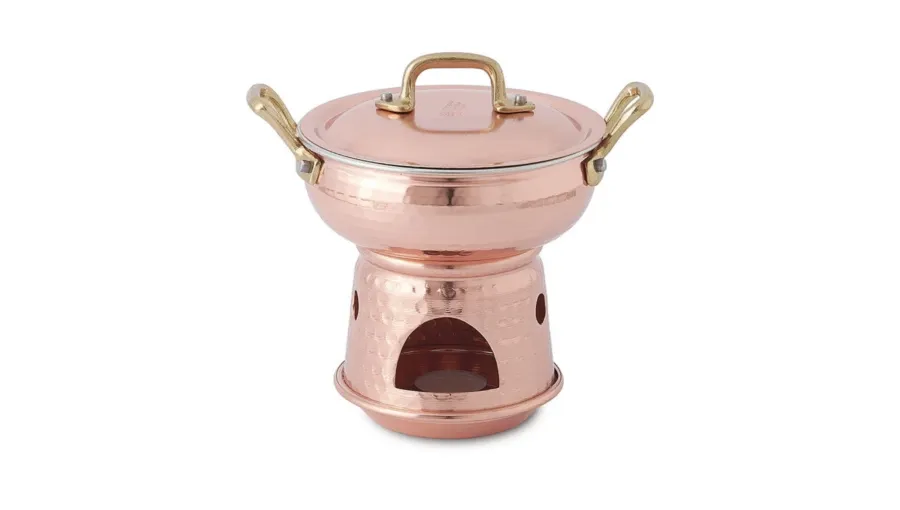
Gordon Ramsay suggests preparing the classic hollandaise sauce in copper saucepans – their thermal conductivity minimizes the risk of sagging. For dessert lovers, copper pots are the perfect choice for preparing homemade candies or jams. Remember to wash them by hand after cooking and polish them regularly to keep their beautiful shine – because cooking is also about aesthetics! And a kitchen equipped with copper pots looks elegant and luxurious.
Healthy and stylish – the most beautiful copper pots and dishes
Copper pots are not just tools for cooking. Very often they are true works of art that adorn kitchens around the world. Manufactured for centuries in traditional manufactories, such as those in Italy, France, Spain or India, copper cookware is not only elegant, but also unique in its functionality.
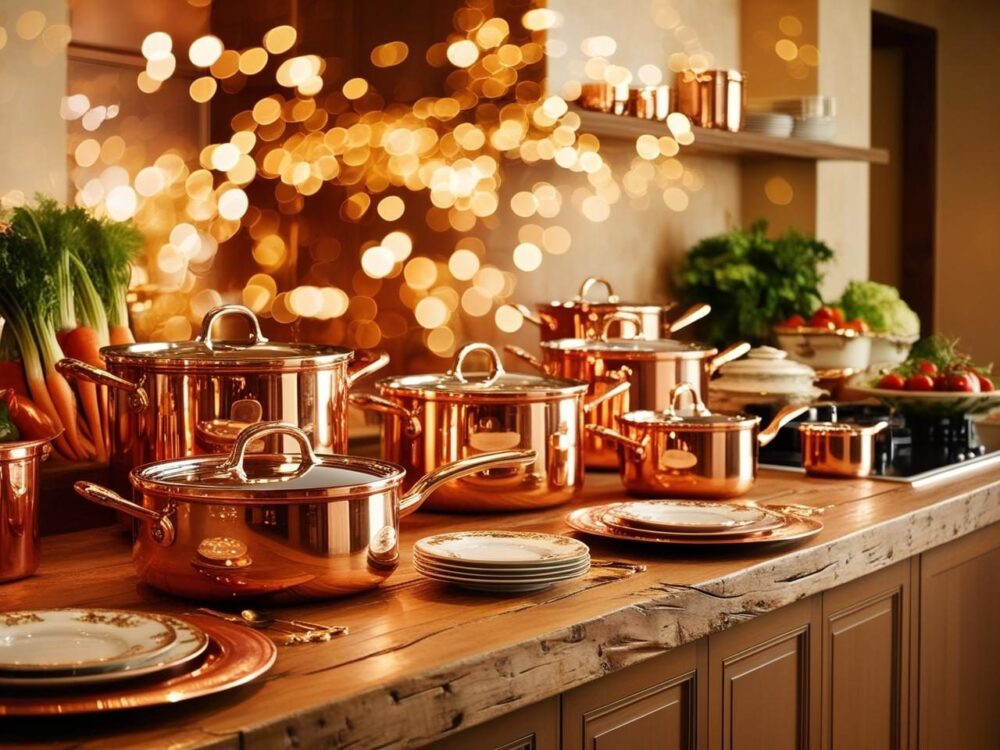
The best pots are made by hand. Experienced craftsmen take care of every detail and intricate, precise workmanship. That’s why the question “are copper pots healthy?” has an answer in this context: properly protected, they are absolutely safe, and their excellent thermal conductivity means that the food cooked in them preserves the fullness of flavour and nutritional values.
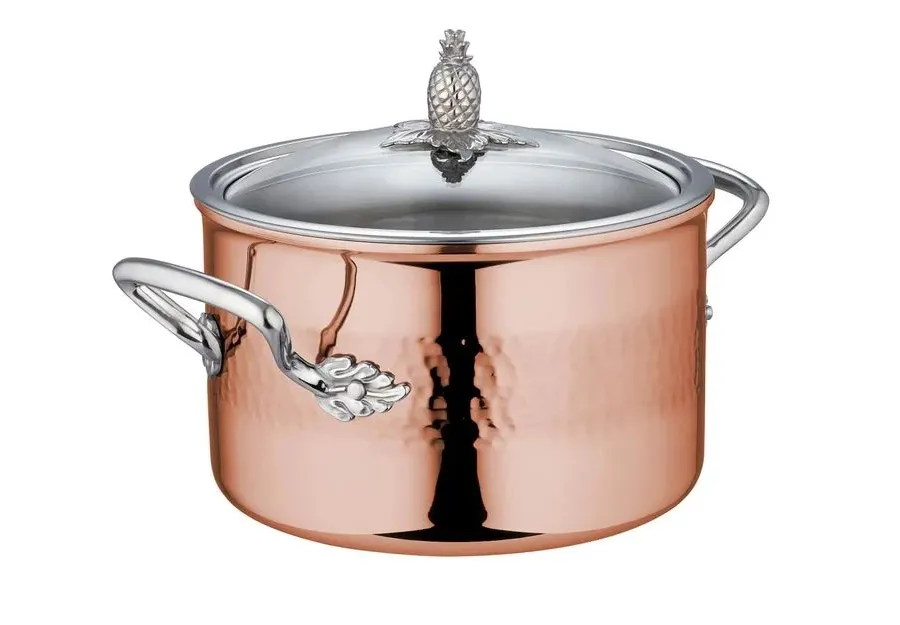
Such cookware fits perfectly both in rustic kitchens, where it adds warmth and character, and in modern interiors, where it is a distinctive accent. Beautifully displayed on the shelves, copper pots are not only practical, but also aesthetically pleasing – an investment in elegance, health and quality of cooking.


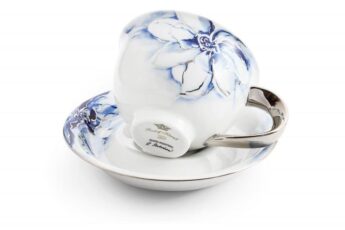





Leave a Comment